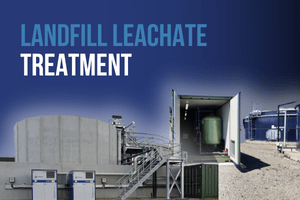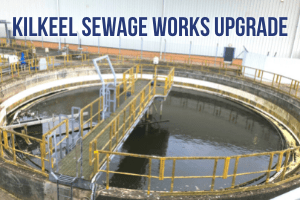The Water Industry Act 1991 defines trade effluent as;
“any liquid, either with or without particles of matter in suspension in the liquid, which is wholly or partly produced in the course of any trade or industry carried on at a trade premises.”
Trade Effluent is any liquid that is discharged to the public sewer from a business, trade or industrial process. This does not include domestic sewage (e.g. wastewater from toilets, hand washing, kitchens) or uncontaminated rainwater.
Its contents are highly variable but may include substances such as chemicals and detergents that can be harmful to the environment if not treated correctly.
Increasing environmental scrutiny on water companies from government, regulators and customers is filtering down to their commercial and industrial customers, many of whom are feeling the pressure to improve their effluent treatment processes.
Trade Effluent Consent Conditions
If you wish to discharge trade effluent into a public sewer you are required by law to obtain a trade effluent consent from the Sewerage Undertaker responsible for the upkeep of the public sewer.
In giving consent for businesses to discharge trade effluent, water authorities may require it to be treated to a specified standard before it enters the foul sewer and becomes the responsibility of the utility to manage. Breaching this agreement can result in fines or prosecution for the business and its owners.
This consent is unique to you, your facility, and the process by which trade effluent is discharged. Among the conditions will usually be:
- Volume/flow rate
- Temperature, pH and other chemical parameters
- The permitted nature and composition of the trade effluent
- The point of entry to the public foul sewer
If the discharge contains persistent or harmful substances, further conditions may be imposed to control or exclude them.
Application for Consent to Discharge Trade Effluent
In England and Wales, trade effluent control is currently carried out by Water Services Companies in their capacity as sewerage undertakers under the Water Industry Act 1991. Although the content is similar, Scotland and Northern Ireland have their own legislation. The Water and Sewerage Services (Northern Ireland) Order 2006 and Scottish Water Sewerage (Scotland) Act 1968.
- Discharge of trade effluent (England and Wales)
- Discharging trade effluent (Scotland)
- NI Water Trade Effluent Application
Colloide has a range of solutions available for effluent treatment. The optimum solution is determined in each case based on parameters such as: existing plant size/capacity/condition; raw water quality; required final quality of treated effluent; space available; etc. Check our full range of effluent treatment technologies.
Sources:
https://www.niwater.com/trade-effluent/
https://www.nibusinessinfo.co.uk/content/what-trade-effluent
https://www.anglianwater.co.uk/siteassets/business/services/led225-trade-effluent-explained.pdf



